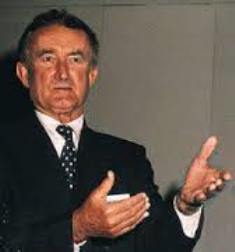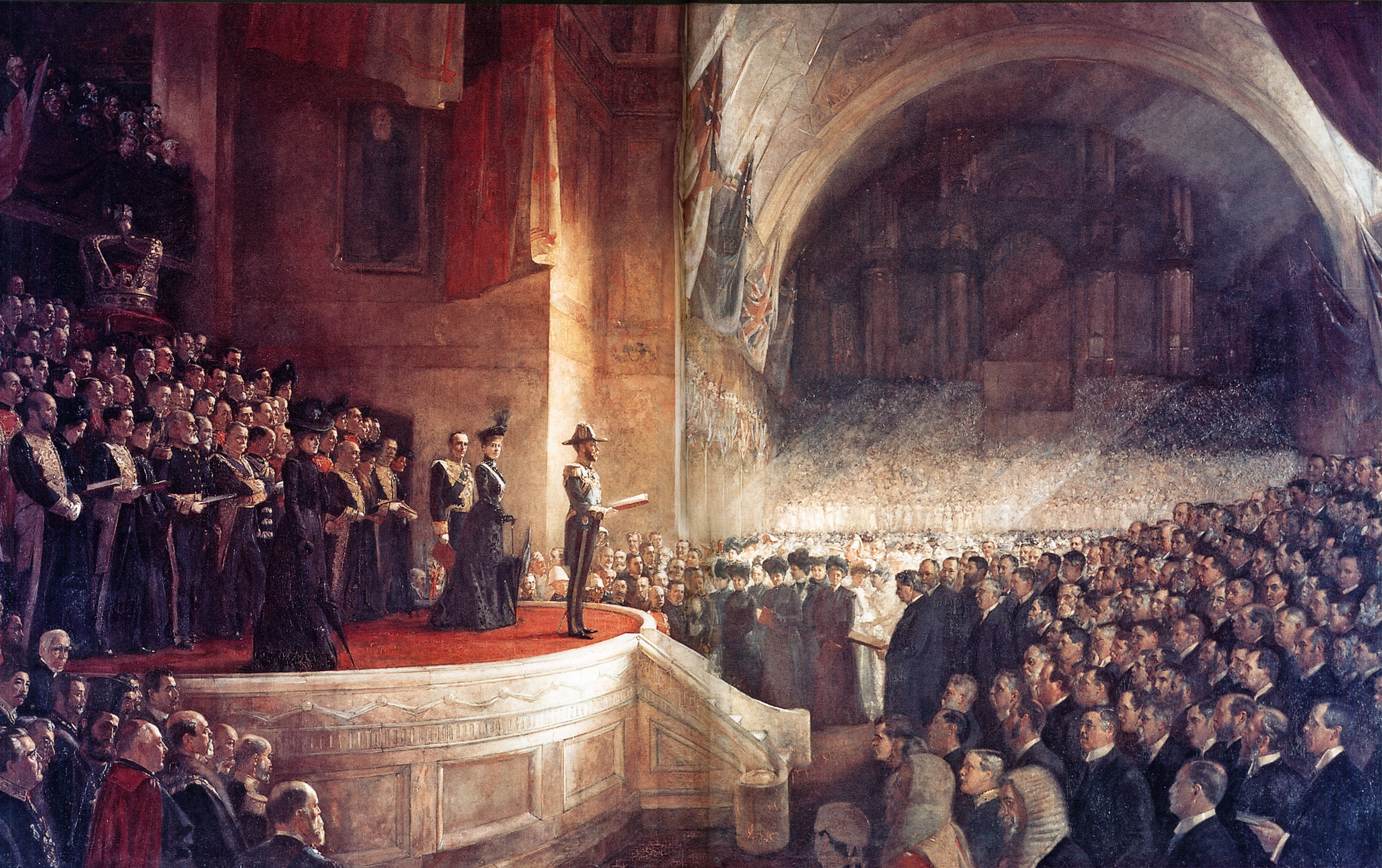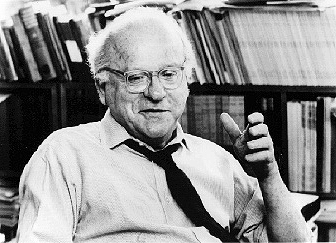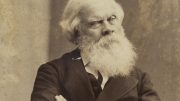
Roderick Ian West – Requiescat in Pace
“Do not suppose, that in thus appealing to the ancients, I am throwing back the world two thousand years, and fettering Philosophy with the reasonings of paganism.”
– Bl. John Henry Cardinal Newman
“Hic est quem legis ille, quem requiris,
toto notus in orbe Martialis
argutis epigrammaton libellis:
cui, lector studiose, quod dedisti
viventi decus atque sentienti
rari post cineres habent poetae.”
– Martial
“Their zeal may be our sin. Lord let us run
Mean ways, and call them stars, but not the sun.”
– John Donne1
I suppose that many people can have fond memories of a headmaster and hence mourn their passing, especially in a nostalgic sense. For me it is far different. Rod was a friend – pure and simple. Once you were his student, you received his pastoral care and tuition for life.
Rod was a rare breed – as if he had been lifted from a warm-hearted Victorian novel. He wasn’t a cliched “Mr Chips”, no, not that. He had a zest and enthusiasm about him that enhanced modernity – he was no ‘relic’. He knew every boy’s name at the school – well over 1,000 at any one time – and each received a ‘Caramello Koala’ on his birthday. He made sure he squeezed some class time into his seven day week. Rod was no mere administrator or “business manager”. He had taught me both Latin and Donne as a young man, and had even managed to give a few sermons during chapel (including one of the finest exegeses of the Pater Noster I have ever heard.)
As an adult I came to appreciate him more and more. As I had children of my own I came to realise what an genius of education it had been my privilege to experience. The older Rod still kept his black locks – as if a raven sat upon his head warding off death. Many off us just assumed from his vivacious attitude that he had a good decade or more left in him, even though he had now reached his mid-eighties. He swam at Manly beach each morning, had a tan as bronzed as the ancient Greek shields his historical intellect admired, and was one of the great cosmopolitan raconteurs. I suspect he was more well-known along The Steyne than Tony Abbott.
He believed in his GOD, adored his church, devoted his mind to the Classics, waxed lyrical about the Greek Islands, loved to read, loved to know people – and was driven by an unstoppable mission of compassion to always help them. He was committed to his wife Janet, a reserved but equally kindly lady of immensely powerful intellect – she was the “firmness” that made his “circle just”. I wonder now, how she will fill such a cavernous void, but I am re-assured by the fact that their’s was “a love so much refined”.2
My last meeting with Rod was at a cafe in Manly by the sea. A couple of Trinity Grammar Old Boys, my three children and me. Upon arrival I was immediately swamped by the tsunami that was Rod’s effervescent personality. He had the table’s conversation well in hand. The permanent twinkle in his eye seemed to enlarge, crystalline, upon my arrival. My young children all caught the awe of this vivacious, grandfatherly man. Immediately the morning had been declared “special”.
Before sitting down, I went to the bathroom, and sure enough, I could hear Rod’s voice like a melodious cracking whip: “What have you got there?” he enquired of my eldest boy, who, like his father, always seems to carry a book with him; “Greek Myths!” exclaimed Rod approvingly – my credentials as a parent were now assured.
What a childhood education I took for granted! Rod West was the Cardinal Newman of Sydney so far as his views on education were concerned. When he educated boys, he was no utilitarian. The state forced his hand in relation to curriculum, and there were certain economic realities he had to face. I presume he was also beholden unto the school council to an extent (Rod was always too polite to engage in such political gossip) – but within these constraints I became exposed to the pillars of Western Civilisation in ways I now never see.
How many schools can lay claim to a replica Ancient Greek theatre as a playground feature? A school where the aesthetic of the grounds matters, because the headmaster wasn’t just educating your mind he was nurturing your soul. He understood that this meant more than just tending to the Anglican faith that underwrote the school and its ethos, it also meant stimulating the moral imagination of the boys and engendering community between them. Indeed we were a kind of Polis. The school’s motto was “Detur Gloria Soli Deo” – may glory be given to GOD alone. I don’t notice the same as I drive past the school these days (it has been replaced with a slogan of a very pedestrian nature on the main public notice board), but of course, Rod would always be too polite to comment upon that.
He was a first rate orator (yes, I’m saying so Rod3), and had a remarkable way of instructing us in our moral education via elaborate stories and parables – highly effective for adolescent minds. One of my favourites was presented at a camp designed to prepare us for the senior years. He told us the tale of early Christian missionaries to New Guinea, who had spared the population from the long standing illness of Kuru, derived from their practice of cannibalism. The curse was lifted once they embraced the teaching of the church and ceased their morbid dining habits. Rod quickly turned this into an allegory about sex. Rod’s simple message was that abstinence was the best contraceptive of all – and drew amusing analogies to missionaries instructing natives as to practices of “safe cannibalism”. That was classic Rod – the living Victorian comfortingly received. Political Correctness be damned – he believed in manners and courtesy. I imagine him in good company with Lord Kenneth Clark describing himself as a “stick in the mud”.4
I couldn’t describe Rod as a “Conservative” in the sense that I am. He was more a conservative in the sense of W.E.H. Lecky or Macaulay. I think he believed that the virtues of British Nineteenth Century Liberalism still had a chance to exist in the modern world. I did however note a sympathetic ear to my Paleoconservative leanings, and underneath it all, I think he carried with him a deep sense of regret as to where ‘it’ was all going – the ‘it’ being the civilisation that he nurtured and loved in his cosmopolitan way.
I remember that we never used to sing “Advance Australia Fair” as the National Anthem at school. We sang “GOD Save the Queen” instead (this is during the 1980s mind you). Rod would explain that if we were to profess ourselves as a Christian country (which he certainly did, even if the Prime Minister of the time didn’t), then our National Anthem had to make reference to The Almighty. So, Advance Australia Fair became for us merely the national song. There was something irremovably English about Rod in spite of his Hellenism, love of the world and its people, insatiable curiosity about other lands and cultures and his propensity to immerse himself in other worlds. I didn’t quite understand it as a boy – but I do now.
Rod instinctively understood the value of Tradition and the Moral Imagination. He hoped to pass the torch on to us – and he certainly has. While many merely succumb to the commercial lures of modernity, some of us were reached.
I thank you Rod, from the very bottom of my heart – for the gift of your life, your kindness, your compassion, your knowledge, your desire to make us the best men that we could ever be. I thank you for showing me what quiet strength and leadership looks like. I thank you for unfaltering manners, for chivalry – for decency. I thank you for showing me that a golden thread of values from the Old World can still exist in ours even if it were “to airy thinness beat”.5
I can’t say that I hope to see you soon – but I know this much, where you are now is where I aspire to be worthy enough to be.
Ave et vale, magister.
– Luke Torrisi
The author is a retired legal practitioner and now an academic researcher and host of Carpe Diem, Sydney’s only explicitly Traditionalist and Paleoconservative radio programme broadcasting on 88.9FM, between 8:00 to 10:00pm, Mondays.
Endnotes (by the Editors):
- For the reader’s edification, the editors wish to add the following note in relation to the epigrams with which the author has chosen to commence his eulogy. Firstly, the items all relate to the passions of Roderick West: education, the Classics (especially Latin texts) and the poetry of John Donne. there is more to these epigrams however than just the suggestion of the subject’s personality. The first epigram is from The Idea of a University and is from a section in which Newman frames his argument in Christian terms to re-assure the reader that his focus is based upon the Church as opposed to his fondness for the Classics. Clearly the author is implying that ultimately West was informed by his faith as his primary source of inspiration in spite of his other loves. The second epigram is from Martial’s Book of Epigrams – the first epigram in fact (a deliberate irony?). Again, the author seeks to reflect West’s love of the Classics and Roman literature, but there is more. The epigram translates thus: “Here is he whom you read, he whom you ask for, Martial, known throughout the whole world for his witty little books of Epigrams. To him, studious reader, while he lives and feels, you have given the glory that poets win but rarely after they are dust.” (W. Ker (trans.), (London: William Heinemann, 1930)). The author seems to be suggesting here that West was appreciated in his lifetime for his gifts as opposed to only being appreciated after his passing. Finally the third epigram is the concluding couplet to Donne’s A Litany Once more, this epigram is more than just a reference to West’s taste in literature. Stanza XIII is entitled “The Doctors”, meaning the doctors of the Church, and the couplet stands as a warning to ensure that the primacy of glory is given to GOD. This is obviously meant to parallel West’s own views on hubris, and how he demonstrated his own humility as a “doctor”. There is a further reference to the school motto referred to by the author in the text – Detur Gloria Soli Deo – may glory be given to GOD alone.
- The author here and above with his references to “firmness” and “circle just” is making reference to Donne’s poem A Valediction: Forbidding Mourning. In that poem, Donne expresses profound affection for his lover in the context of separation. Clearly the author is using Donne as an homage to West, given his passion for the poet, but he is also conveying what he perceives as a remarkably profound marriage between the Wests. West was known to be particularly fond of Donne’s conceits and perhaps this is what the author is attempting to do here within the obituary itself as a kind of ultimate homage – offer a conceit within the conceit, by comparing the West’s marriage to the conceits of Donne’s poetry.
- The author was one of Trinity Grammar’s oratory champions and was known to have drawn his headmaster’s admiration. In a reference provided by West to the author, he said of him “the less he prepares the more ably he speaks”. What at first may seem to be an “in-joke” reveals itself as the author’s assurance to others that West is now with GOD and perhaps even continues to “keep an eye” on those he loves. The conclusion of the piece has him addressing West directly, perhaps unfinished words that the author missed an opportunity to say prior to West’s passing.
- This is a phrase used by Lord Clark to describe himself in the final chapter of his work Civilisation. The author’s surrounding phrasing suggests that he intends for all the values expounded by Lord Clark in that chapter to be applied to West.
- This is another allusion by the author to Donne’s poetry, indeed the very same A Valediction: Forbidding Mourning.




I will be forever grateful for the outstanding influence Mr West had on my son, and all the boys who had the good fortune to be in his care. As Headmaster at Trinity Grammar School, Mr West was a living example of true Christian manliness. He did know every boy’s name (and if he didn’t he had to give them a Caramello Koala); he had insight into every boy’s peculiar talents and strengths; average boys were encouraged to be excellent, in all ways not just in a single field like academia or sport; he did insist upon exposure to the Arts … and Cadets … and Christianity … and Latin (he taught my boy the word for ‘slave girl’ and he delighted in calling me something like ‘ankila’). Mr West had an unswerving faith in ‘spirited’ boys, the ones others thought difficult, like my boy, who was a Year 7 & 8 boarder in Mr West’s last two years. Mr West’s good influence on my son was immeasurably … second only to my father’s, who was also a boarder at Trinity Grammar (in the 1930s) and who paid the school fees for my son, and was also an example of manliness worth emulating.
Rest in Peace, Sir. Thank you for making a difference.
This is an excellent eulogy, which expresses my thoughts exactly. Mr Roderick West was a legendary man, a legendary scholar, a legendary friend. He had a memory which could only be described as a prodigious gift of God. Who else do we know who could remember the names of a thousand boys every year, as well as the names of their parents and other relatives?
Mr West was larger than life. Until now, his words always echo in my ears, even after twenty to thirty years: his memorable lessons on John Donne, sprinkled with valuable moral guidance for growing adolescent boys; his lessons in Latin; his directing of a plays (Latin and Shakespearean); his words about “God save the Queen”; his wonderful, thrilling speeches during daily morning assemblies; his fatherly encouragement while I was trying to train for the City to Surf, and innumerable other examples.
Not only do I treasure my memories from school, but I treasure more my friendship with him after school. He attended my wedding, and he always remembered my wife and children’s names. And every time we metm he always recalled what he called my “brilliant performance as Iago” in a year 10 performance of Othello.
Mr West, as Luke so beautifully said in his eulogy, was a Victorian gentleman, a virile and exemplary Christian, a scholar passionate about his studies, and a great man.
We sorely miss him.
Requiescat in pace,
In peace may you rest,
Most noble, most refined,
Most beautiful Mr West.
Bravo, RIP good and faithful servant. I knew Rod – his inspirational works regarding the Pine Bluff campus had such a Christian, spiritual impact on so many boys and he was a True friend.
We are all so very very grateful for your life and great works. Glory be to God alone.